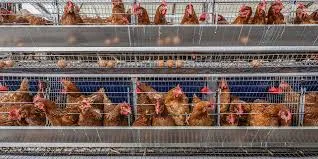Efficient Mixing Solutions for Feed Mill Production and Processing Needs
Oct . 09, 2024 13:43 Back to list
Efficient Mixing Solutions for Feed Mill Production and Processing Needs
The Importance of Feed Mill Mixers in Modern Agriculture
In the contemporary agricultural landscape, the efficiency and effectiveness of feed production are paramount. One of the crucial components that significantly impacts the quality of animal feed is the feed mill mixer. These specialized machines are indispensable in ensuring that feed is uniformly blended, providing livestock with the essential nutrients they need for optimal growth and productivity.
Feed mill mixers come in various designs, including horizontal, vertical, and batch mixers. Each type has unique advantages that cater to specific production needs. Horizontal mixers, for example, utilize a horizontal mixing chamber that allows for rapid blending of ingredients. This design ensures that particles are evenly distributed, reducing the chances of segregation during the mixing process. On the other hand, vertical mixers are particularly effective for incorporating large volumes of feed in a compact space. They work by using gravity to mix ingredients thoroughly, which can be particularly advantageous in smaller operations.
The mixing process plays a vital role in the nutritional quality of the feed. Livestock require a balanced diet that includes proteins, carbohydrates, vitamins, and minerals. Improperly mixed feed can lead to nutrient segregation, where certain ingredients settle at the bottom or accumulate in specific areas of the mixer. This can result in animals receiving an imbalanced diet, adversely affecting their health and productivity. By utilizing advanced mixing technologies, feed mill mixers ensure that each batch of feed contains a consistent and uniform distribution of nutrients, promoting better animal performance.
feed mill mixers

Moreover, the automation and technological advancements in feed mill mixers have transformed the feed production process
. Modern mixers are often equipped with digital controls and monitoring systems that provide real-time data on the mixing process. This not only enhances the quality control of feed production but also optimizes operational efficiency. Operators can adjust mixing times, speeds, and ingredient ratios on-the-fly, ensuring that they meet the specific dietary requirements of their livestock.Additionally, feed mill mixers contribute significantly to cost-effectiveness in feed production. By optimizing the mixing process, they reduce ingredient waste and improve overall feed conversion ratios. The ability to produce high-quality feed efficiently allows farmers to lower their production costs while ensuring their animals receive the best possible nutrition.
In summary, feed mill mixers are essential tools in modern agricultural practices. Their role in ensuring uniformity in feed production directly influences the health and productivity of livestock. As technology continues to advance, these mixers will undoubtedly play an even more significant role in the sustainability and efficiency of the agricultural industry. Investing in high-quality feed mill mixers is not just a decision for improved production; it is a commitment to the health and well-being of livestock and, ultimately, to the future of food security.
-
Hot Sale 24 & 18 Door Rabbit Cages - Premium Breeding Solutions
NewsJul.25,2025
-
Automatic Feeding Line System Pan Feeder Nipple Drinker - Anping County Yize Metal Products Co., Ltd.
NewsJul.21,2025
-
Automatic Feeding Line System Pan Feeder Nipple Drinker - Anping County Yize Metal Products Co., Ltd.
NewsJul.21,2025
-
Automatic Feeding Line System - Anping Yize | Precision & Nipple
NewsJul.21,2025
-
Automatic Feeding Line System - Anping Yize | Precision & Nipple
NewsJul.21,2025
-
Automatic Feeding Line System-Anping County Yize Metal Products Co., Ltd.|Efficient Feed Distribution&Customized Animal Farming Solutions
NewsJul.21,2025






